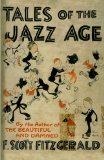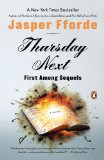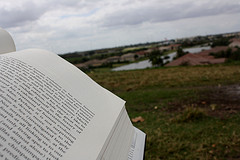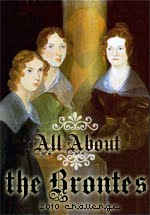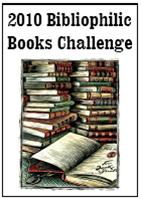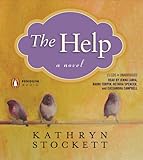 I have been listening to Kathryn Stockett’s novel The Help during my commutes and car trips, and I finished it this morning just moments after I pulled into my parking space at school. Stockett’s first novel is about the relationships between white Southern women and their black domestic help during the Civil Rights Movement era in Mississippi. I have picked up the hardcover novel several times, but until my principal recommended it, I wasn’t sure I’d like it. I think sometimes the book is done a disservice by its description. Case in point: look how I described it in my second sentence. For some reason, that description didn’t grab me either. The book is about these relationships, but it’s more.
I have been listening to Kathryn Stockett’s novel The Help during my commutes and car trips, and I finished it this morning just moments after I pulled into my parking space at school. Stockett’s first novel is about the relationships between white Southern women and their black domestic help during the Civil Rights Movement era in Mississippi. I have picked up the hardcover novel several times, but until my principal recommended it, I wasn’t sure I’d like it. I think sometimes the book is done a disservice by its description. Case in point: look how I described it in my second sentence. For some reason, that description didn’t grab me either. The book is about these relationships, but it’s more.
I have talked to three people at work (note: I live in Atlanta) who grew up in circumstances similar to those described in the book. All three of them described the love they felt for the black women who took care of them—they were family. Stockett herself describes being raised by Demetrie, a woman who worked for her grandmother and her mother, and Stockett acknowledges that while she cannot know what it was like to be a black maid in the South, she felt that she wanted to try to describe it as a way to honor Demetrie. I suspect this relationship Stockett had with Demetrie, whom she describes as surrogate mother, informed her description of Aibileen’s relationship with Mae Mobley Leefolt. I teared up several times during the course of listening to this book, but most often, it was because of a moment between Aibileen and Mae Mobley.
If you have lived in the South for any period of time, you will recognize all of the characters: Junior League President Hilly Holbrook runs the town of Jackson with an iron fist, or thinks she does. She plays bridge with her old friends and former classmates at Ole Miss, Elizabeth Leefolt and Skeeter Phelan. Elizabeth is Aibileen’s employer and Mae Mobley’s mother. She follows Hilly Holbrook’s instructions to the letter. Skeeter is an aspiring writer. She is shy and insecure after living under the exacting scrutiny of her formidable mother, but she is uncomfortable with the way things are and desperately misses her family’s maid Constantine. It is during a regular meeting of the bridge game (Hilly’s mother makes up their fourth in this first game) that the novel’s events begin to unfold: Skeeter asks Aibileen if she ever wishes things could be “different” during a private moment in the kitchen, and Aibileen, suspicious and cautious, answers “no.”
The Help is an amazing book. It has joined the ranks of my favorites. I think my experience with the book was much enriched by the voices of the actresses in the audiobook; it’s simply one of the best narrations I’ve ever heard. I felt like I had made friends with Aibileen, Minny, Skeeter, and Celia by the end of the book, and I am dying to know what happened to them all. I try not to give away the endings of books in my reviews, but I will say that no neat little bow exists at the end of the book. In my mind, I have some satisfactory endings written for all of the characters, including Hilly Holbrook (that witch!) and Mae Mobley, and I really hope their stories ended the way I imagined they would. Perhaps Stockett has given the reader a true gift in leaving the characters in the way she did: we can write the ending ourselves. Of course, it goes without saying that with so many loose ends, Stockett could easily write four or five sequels!
My favorite character was easily Minny, and I really loved the plotline involving Minny’s relationship with her new employer, Celia Foote. Poor Celia! I absolutely adore patient, loving Aibileen. Skeeter rings true as an intelligent aspiring writer. You’ll wonder how on earth she could ever have been friends with Hilly Holbrook by the novel’s end. If you have the chance to listen to the novel, I feel that Jenna Lamia, Bahni Turpin, Octavia Spencer, and Cassandra Campbell did a masterful job bringing these characters to life. One of the criticisms I have seen of this novel is that the white characters’ speech is not rendered in dialect, while the black characters’ speech is. I couldn’t have told you that listening to the novel. The actresses all read in dialect that rang true to me, and I don’t know how she does it, but Bahni Turpin, who reads the part of Aibileen, sounds just like a small child as Mae Mobley and can switch among several pitch perfect white Southern women’s dialects as well.
Another criticism I’ve read of the book is that it should not have been written by a white woman. In her review of The Help, Elinor Teele raises these questions:
Is Minny with her outlandish catchphrases just another version of Mammy, updated for more sensitive times? Even if stories haven’t been told, is it fair for an outsider to tell them? What would Hattie McDaniel, who worked as that $7 maid before making it to Hollywood, think of this book?
Valid questions, but Octavia Spencer, who reads the part of Minny replied to these questions:
Finally, I think you posed the question, ‘what gives her the right to tell these stories, in the voice that she chose.’ My response to that is simple, she’s human. My interpretation of the story is that we are all human. What better way to demonstrate that than taking America back in time to an ugly part of her history, and showing through the experiences of these provocative characters that beautiful, human side. A writer needn’t be black or white to tell these stories, just truthful.
Something about Ms. Spencer’s response to Teele’s review rings so true to me. This story is everyone’s story. In the words of Skeeter Phelan, “Wasn’t that the point of the book? For women to realize, we are just two people. Not that much separates us. Not nearly as much as I’d thought.”

